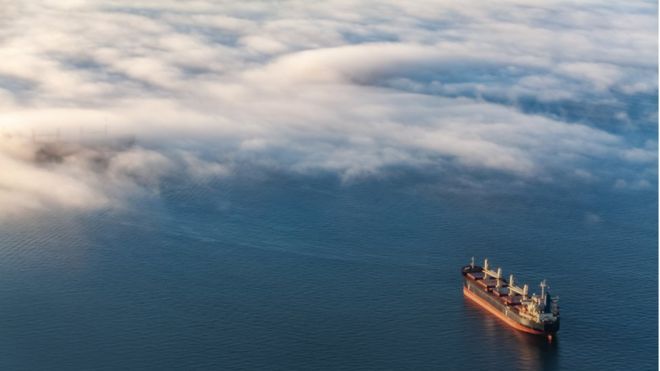Sailors tell of months stuck on ships
Seafarers across the world are stuck on their ships, spending months without shore leave as ports ban crew transfers.
While
most are being paid and some are getting extra pay, they are doing
their jobs without the expected breaks, often 12 hours a day and seven
days a week.Since March, many ports are refusing to allow crew changes or shore leave, meaning for some that a three-month contract becomes almost twice as long.
Most crew members say they've had contracts extended in the past, when illness or bad weather delays their relief crew. But mariners with long memories say a situation like this, with no end in sight, is unprecedented.
"We are all stuck out here and we don't know what to do," says an officer on a tanker vessel.
"Everybody's waiting as to what your home country will do. Only when the home country is ready to accept their own citizens, we can go home."
It's the fact that they don't know the length of time they'll spend on board
"We have been under pressure for quite some time. It takes a toll on your mental health. If you don't know what's going to happen it's more frustrating mentally on you," the officer says.
The BBC has interviewed crews on tanker vessels, container ships and cruise liners.
Most don't want to be named as they have not been authorised by their employers to speak to the media. While shipping is a critical industry for global trade, it's also one which faces many challenges - previously amid US-China trade tensions and now the economic effects of coronavirus.
Over the decades, the trend has been towards larger ships and smaller, cheaper crews in order to cut costs in a competitive market.
The tanker officer should have been on a three-month contract, but he will spend almost six on his ship. Once he does get home, he says he expects to be in quarantine for up to a month to help stop the spread of the virus.
"On top of that, you will be worried you don't catch it, and if you do catch it you don't give it to your loved ones."
Before the prospect of quarantine, he needs a port that will let him off, and where there are flights home. If a planned flight is cancelled, he'll be put back on his vessel. Until then, he is stuck, and his company has no news for him.
He was forced to sail away rather than take some shore leave to see his family.
Most officers will spend three to five months on a ship before they are relieved, and may then have the same amount of time as rest at home. For more junior crew, stints can be nine months, but with shore leave in between.
As well as not knowing when their contracts will end, a ban on shore leave is what makes the current situation particularly unpleasant, according to an officer on a container ship.
"Morale is quite low, especially because you can't go out ashore and without that by definition it's cabin fever," he says.
"You're working all the time in the same environment, everyone's groggy, everyone wants to go home, people start making small mistakes and it gets you down. We are trying our best to get along with each other."
While longer time together is helping build some camaraderie, things are still hard, he says.
Without a break ashore, or a drink - his vessel is dry - "it's just Groundhog Day every single day."
His ship makes plenty of stops, which would usually mean plenty of opportunities to see a new city and have some respite. But many Asian ports now demand to see two weeks pass between stops to show that no crew have developed symptoms. It means he may not be able to leave for weeks.
For the ratings, more junior crew, it can be harder. A steward on his ship is creeping towards a year on board and still getting up at dawn to cook the crew meals.
Lockdown hasn't affected the maintenance necessary for running a ship and there's plenty to do for everyone, from navigational duties to maintaining fire safety gear and lifeboats.
https://www.bbc.com/news/business-52494839





Post a Comment